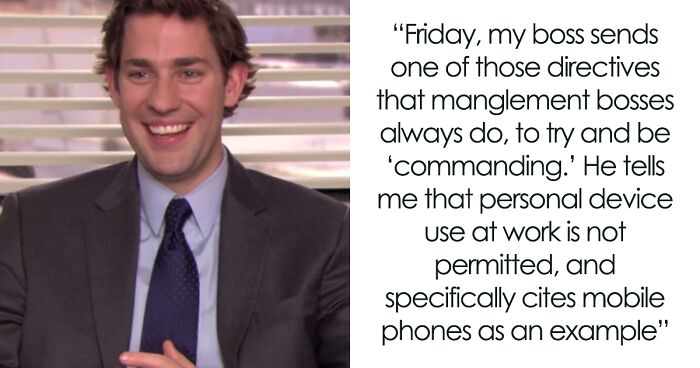
Employee Is Told By Boss They Can’t Use Personal Phone At Work Anymore So They Maliciously Comply, End Up With No Ability To Work At All
When people become managers, they want to establish their authority and can become really controlling. Even later, from time to time, they will remind the staff who is boss by requiring them to do things that don’t make sense.
This person has a boss who acts like that and was told that he couldn’t use his personal phone for work, wanting to annoy him, but without thinking that it meant he wouldn’t be able to do his job. However, the employee didn’t try to argue, which wouldn’t have worked anyway.
An employee was forbidden to use their personal phone at work
Image credits: Scott Rubin (not the actual photo)
So they deleted all the work-related apps and asked for desktop versions of them, knowing that the company was not prepared
Image credits: MrWacko
That led to a day of scrolling on the internet and having the last laugh when their boss tried to micromanage them
MrWacko, who is the Original Poster (OP) of the story, works in IT Cybersecurity. His work nature requires him to use a phone to be able to access the necessary systems and software, only the company doesn’t provide work phones, so employees have to use their personal ones.
For some reason, OP’s boss doesn’t like him very much and thought it was time to remind him of work protocols. The boss pointed out that use of personal devices is not allowed and mentioned phones as one of them.
When a person works with cybersecurity, it’s quite understandable that there would be a rule of using only company equipment for your work. The problem is that there isn’t any company equipment to substitute the personal phone with.
But because the employee was simply annoyed with his boss and that he was the only one targeted, he decided to comply, uninstall everything from his personal phone and ask for the desktop versions of the apps so he could continue working.
That caused confusion and the boss had to rush the approvals for necessary software as he wasn’t expecting it, while the OP was calmly browsing the internet as there was nothing else to do because he didn’t have any access to the systems needed for work.
Redditors decided it was another case of an arrogant boss not asking the people who actually work and have knowledge of how things work getting what they deserved. It could be that bosses are afraid to admit that they don’t really know something because it would diminish their authority, but it happens all the time.
Actually, it is called the Peter Principle. Investopedia explains that it is “an observation that the tendency in most organizational hierarchies, such as that of a corporation, is for every employee to rise in the hierarchy through promotion until they reach a level of respective incompetence.”
More simply put, people competent in their position get promoted because they are good at their job until they aren’t anymore.
Image credits: Brian (not the actual photo)
Bored Panda reached out to Memory Nguwi, an Occupational Psychologist, who explained to us that “Organizations promote people for two reasons (1) as a reward for performing in their current role and (2) because they believe the individual will give their best value to the organization in a higher role. In most cases, people are promoted as a reward for performing in their current role without assessing whether they will add value in a higher role. This leads to people being promoted to roles beyond their capacity.”
Memory Nguwi observed that incompetent people are chosen for higher roles because companies don’t do proper “check if the individual can handle the higher role. Instead, they rely on past performance in their current role. In situations where an individual has been promoted to a higher role where they have no capacity, they will pull that role down to a level where they are comfortable. This will mean that instead of focusing on their new role where a certain skill set is required, they will come done to want to do the subordinate’s job or macro manage it because this is where they feel comfortable.”
We also contacted Alan Benson, an Associate Professor in the Work and Organizations Group at the University of Minnesota’s Carlson School of Management and he provided a very similar explanation, “The Peter Principle happens because organizations try to balance two goals: promoting the best person in their current role, and also promoting the best person for the next role. Assuming the two roles aren’t identical and use the same skills, organizations can’t optimize both. If they choose to promote the best person for the destination role, then that could mean passing over someone who’s a better performer if the organization thinks they’d make a worse manager. That could lead to all sorts of fairness and morale issues.”
The Professor believes that the Peter Principle might be avoided by providing employees with training, but he wouldn’t put all of his hopes in it, “you really don’t know whether someone will succeed in a new role until they’re actually there. Moreover, some people would be great potential managers, and would aspire for those promotions, if they were given the developmental opportunities to learn for themselves whether leadership suits them. Unfortunately, there’s a stigma to moving backward in organizations, and that stigma may mean that organizations provide too few opportunities for people to try out different roles.”
The Occupational Psychologist also doesn’t believe that training can solve the problem. He claims that jobs require more than just knowledge of how do tasks and the other skills can’t be taught in all cases, “Research shows that what predicts performance in every job is (1) cognitive ability (which is largely hereditary and partly childhood experience), (2) job knowledge (not qualifications) and integrity (largely driven by individual personality). These are the top 3 predictors of job performance in the order listed. Organizations tend to rely more on qualifications and ignore the other parts. Whether training can correct the challenges brought by the peter principles largely depends on assessing suitability for a higher role by focusing on the 3 predictors highlighted above. Jobs vary in complexity as you go up. Training would not help in cases where the individual lacks the cognitive capacity for the higher role. If an organization proceeds to promote an individual to a higher role to which they have no cognitive capacity, it’s almost guaranteed that this person will fail. If the individual lacks job knowledge but has the right cognitive capacity for the role, they can be trained. If they lack integrity, no amount of training will correct that.”
There are obvious negative consequences that follow and Investopedia points out less effective leadership as the biggest one. The Business Standard points out that the managers themselves realize that they are not competent enough for their roles and are frustrated they can’t go even higher, so they become lazy and incompetent.
Those feelings lead them to “devise complex strategies that their subordinates find difficult to comply with. The manager may double down on the need for formalities, demand unrealistic perfection, meddle with and criticize the work of their subordinates, shut down new ideas from their subordinates and develop peculiar habits like insisting on keeping a clean desk (paperwork may remind them of the inadequacy) or do the exact opposite by stacking files and papers on their desks (to give the illusion of heavy workload).”
Memory Nguwi adds that “The cost of promoting people to their highest level of incompetence is huge. A conclusion from one study on the same says ‘Consistent with this hypothesis, we find that firms are substantially more likely to promote top salespeople, even when these workers make worse managers on average and on the margin. This behavior results in firms promoting workers who decrease subordinate performance by 30%, relative to a promotion policy that optimizes match quality.'”
This is exactly what many people who have bosses similar to the OP’s complain about and what managers don’t realize actually prevents workers from doing their job and feeling motivated to start their work in the mornings.
In Memory Nguwi’s opinion, this particular boss from the Reddit story most likely didn’t learn from his mistake because he believes the person’s behavior is a personality defect. Actually, the expert provides an analysis, “Let us start with what could be the cause of such behaviour by the boss. From my assessment, it would seem the boss (in addition to not having the capacity for the role), may also have personality challenges, especially the need for power and control at all costs. This is even worse when they can feel that they are incompetent. They become jealous of their subordinate’s work, so to control the subordinate; they come up with unreasonable demands.”
Alan Benson points out that the managers affected by the Peter Principle don’t know it so they consider themselves competent and “tend to take credit when things are their team go well, but blame outside factors when they fail.” It could be that this will happen to the OP’s boss and they will have to suffer his bad mood because of this commotion.
Do you think the OP taught his boss a lesson to be more cooperative in the future? Do you think it is possible to know if a person will be a good manager before promoting them? Do you think there are people who are just not fit to be managers no matter how much training they have? Let us know what you think about the story and the Peter effect in the comments.
People in the comments believed that the boss was served the reality check he deserved
Image credits: Alper Çuğun (not the actual photo)
I refuse to put work related anything on my phone unless the company is willing to contribute to my bill
Same. I was more than happy to have Outlook on my phone - if they covered the cost of an unlimited data contract and guaranteed they had no access to personal data on the phone...
Load More Replies...I think what he did is hilarious!!! Some of you maybe havent had the boss that doesnt know their ** from a hole in the ground...and they use you to make themselves look good....I wouldnt have used my personal phone without compensation...but sometimes you are put on the spot....I had a passive - aggressive boss that tried to make it seem like you were being given a choice but meaning just do it.After leaving a job where that boss tried to steal every idea I had but had no clue deep down she was scared Sh** itless of me and everything I knew.10 yrs worth of building a awesome Dept, making the Co a boatload of money...it all crumbled in a NY minute when I left.It was rewarding to find out at their annual goal meeting the ED talked about how valuable I had been, how much$$$ I made them and unfortunately without me they had to close the Dept down. I can say that felt validating & I would have loved to have seen her face!!!!
I don't care if "manglement" is mispelled or not. It's genious and needs to be added to the dictionary!
I refuse to put work related anything on my phone unless the company is willing to contribute to my bill
Same. I was more than happy to have Outlook on my phone - if they covered the cost of an unlimited data contract and guaranteed they had no access to personal data on the phone...
Load More Replies...I think what he did is hilarious!!! Some of you maybe havent had the boss that doesnt know their ** from a hole in the ground...and they use you to make themselves look good....I wouldnt have used my personal phone without compensation...but sometimes you are put on the spot....I had a passive - aggressive boss that tried to make it seem like you were being given a choice but meaning just do it.After leaving a job where that boss tried to steal every idea I had but had no clue deep down she was scared Sh** itless of me and everything I knew.10 yrs worth of building a awesome Dept, making the Co a boatload of money...it all crumbled in a NY minute when I left.It was rewarding to find out at their annual goal meeting the ED talked about how valuable I had been, how much$$$ I made them and unfortunately without me they had to close the Dept down. I can say that felt validating & I would have loved to have seen her face!!!!
I don't care if "manglement" is mispelled or not. It's genious and needs to be added to the dictionary!

 Dark Mode
Dark Mode 

 No fees, cancel anytime
No fees, cancel anytime 







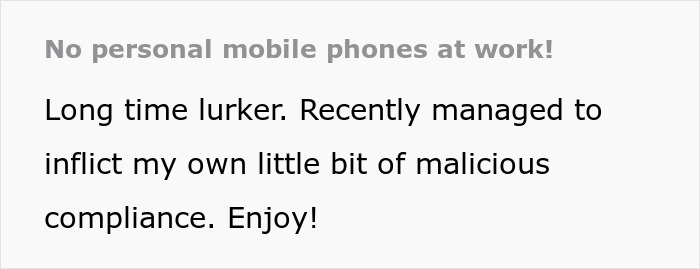
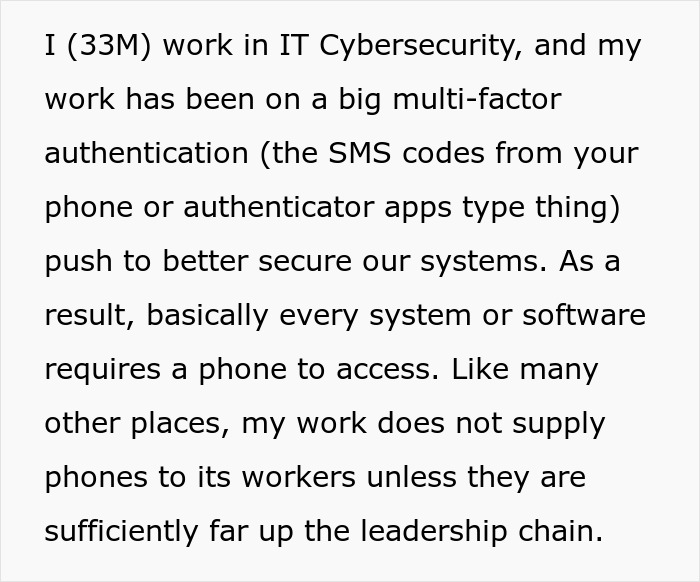
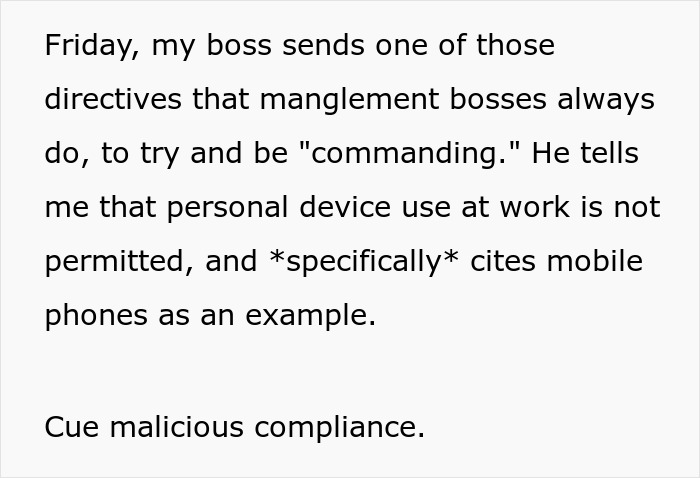
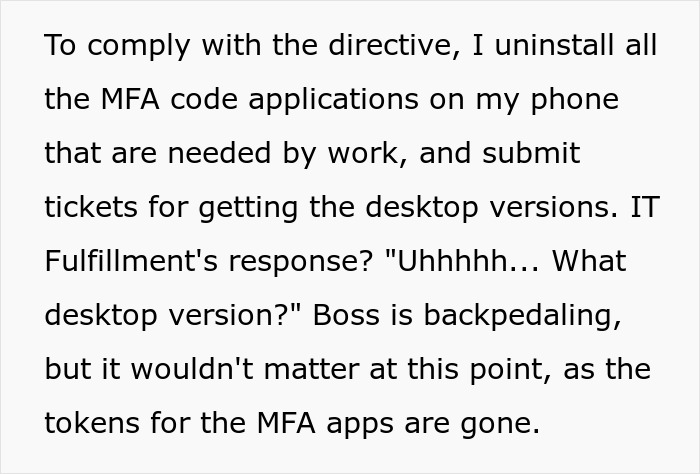

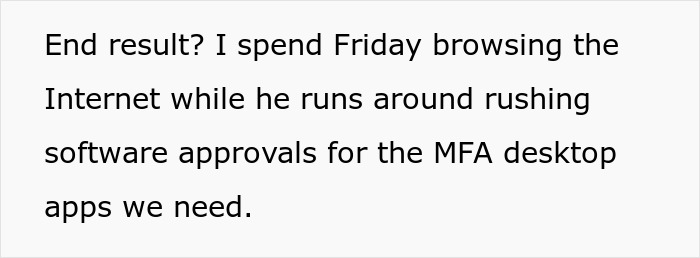
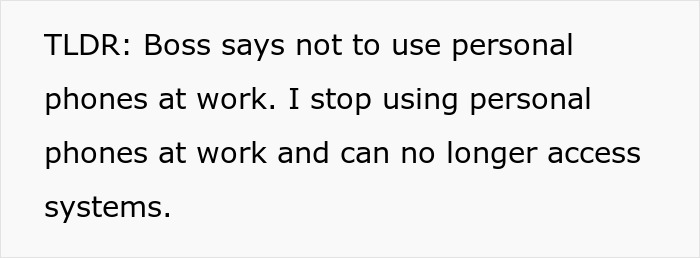

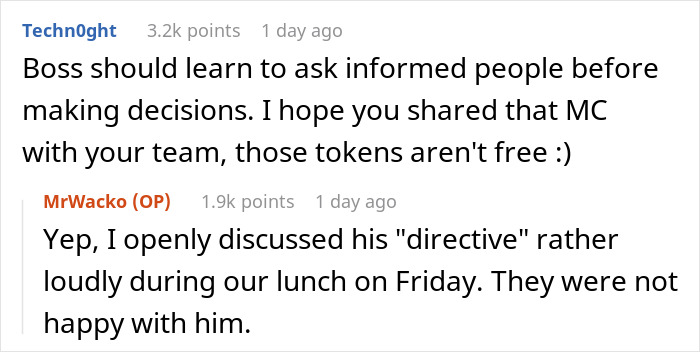
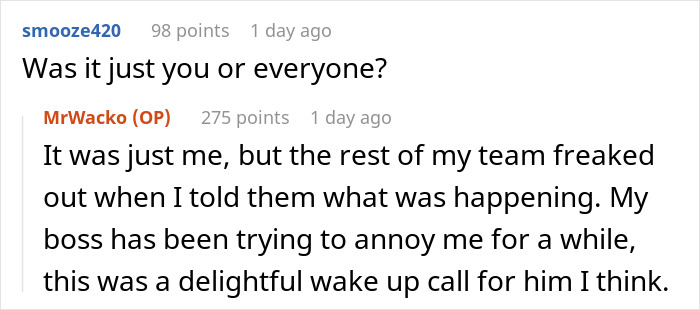



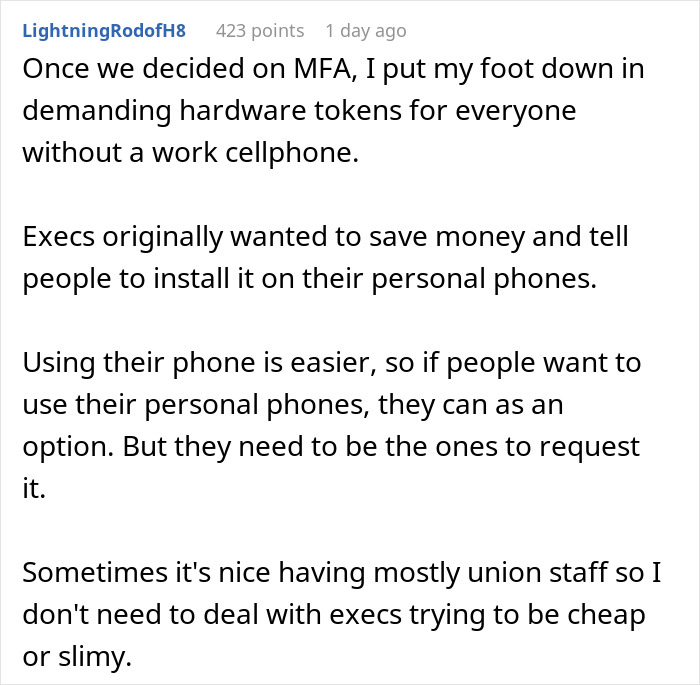

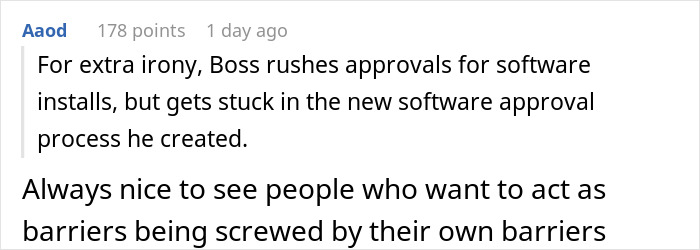
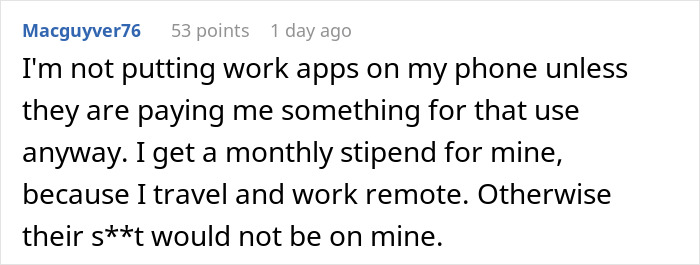
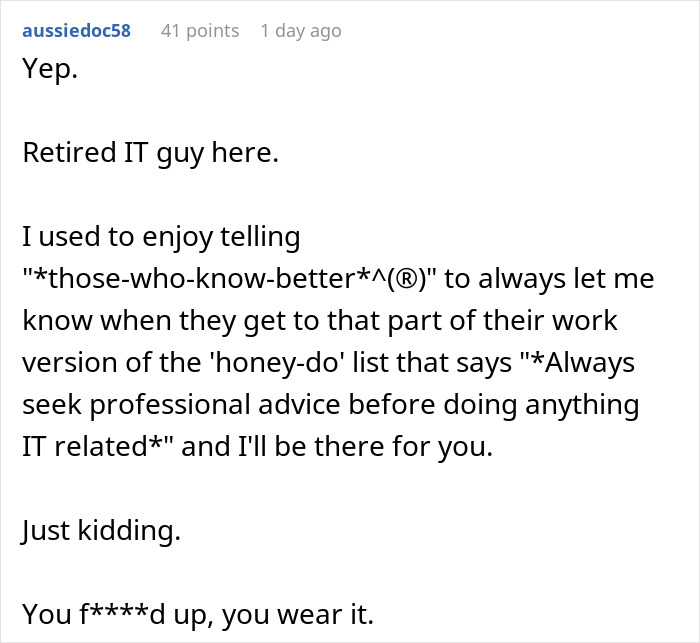
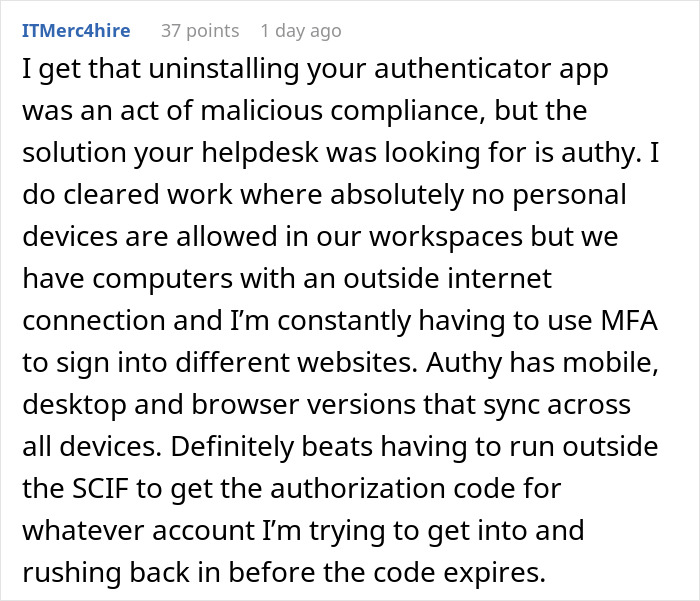

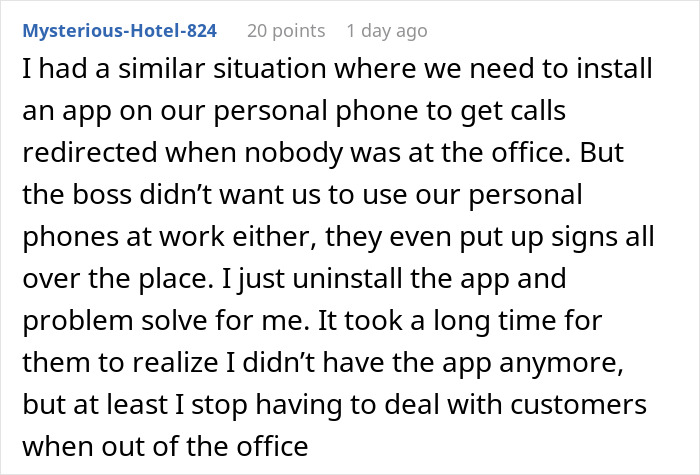



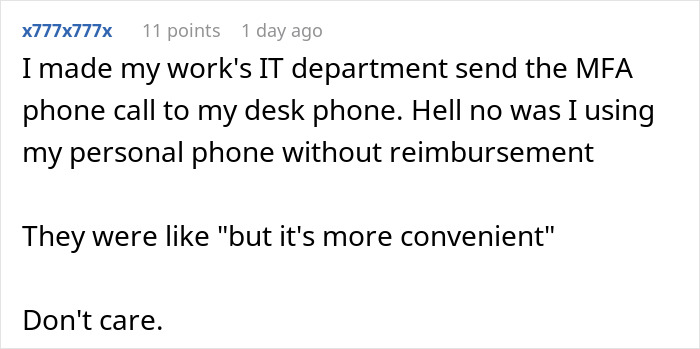
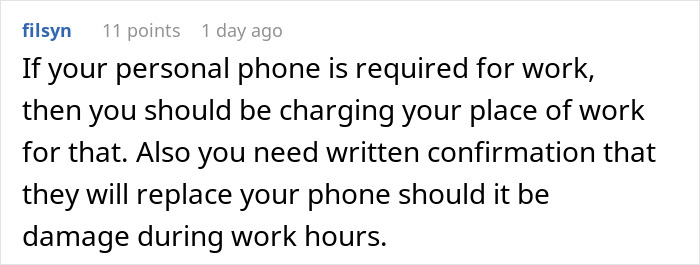


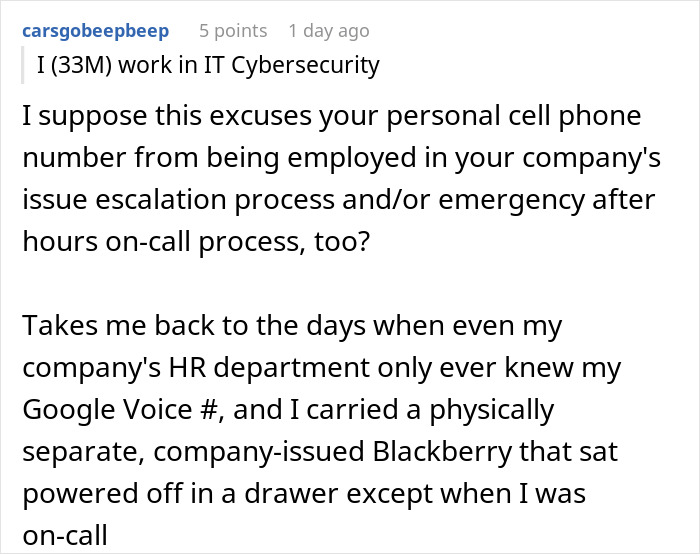












































61
45